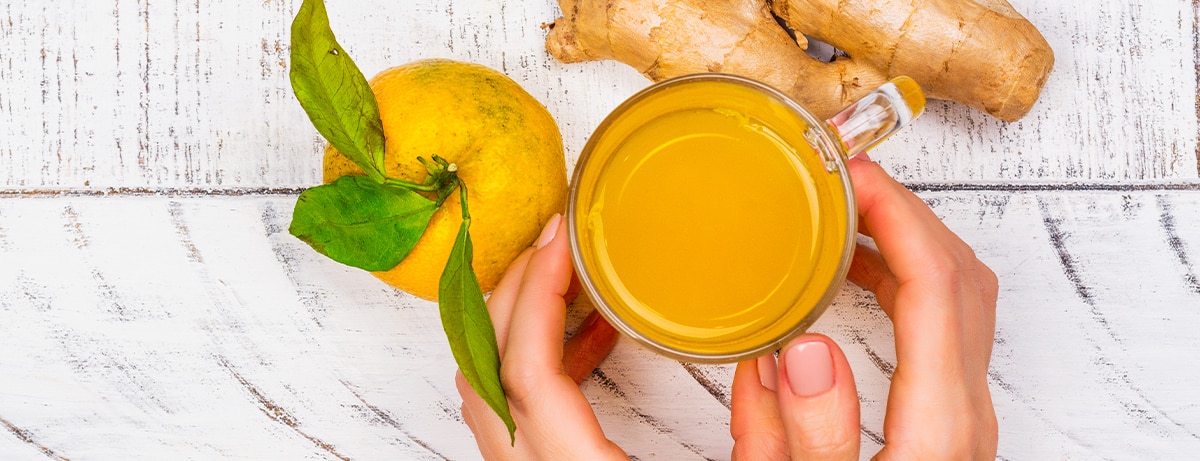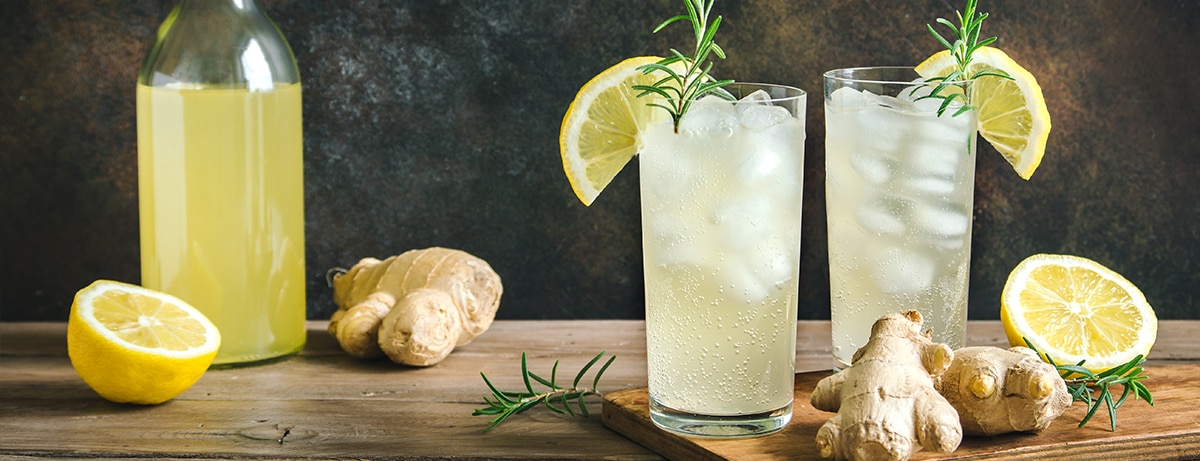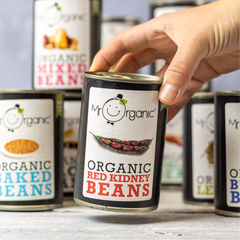10% off £25 OR 15% off £35
.png)
You may have seen MCT oil as an ‘optional extra’ in your local trendy coffee shop or plastered all over sports and nutrition blogs… but what is it? What does it do? This article will delve into the world of Medium-Chain Triglyceride (MCT) oil and help you decide if it’s for you!
What is MCT oil?
MCT is short for Medium Chain Triglycerides. As the name suggests, MCTs are medium-length triglycerides, which are a type of fat.
MCT oil is extracted from food sources of MCTs, the most prevalent source being coconut oil.
What makes MCTs unique is that they are shorter than longer-chain fatty acids which are found in lots of foods like fish, meat, eggs, milk and some plants like microalgae.1 Our bodies also find them easier to absorb and convert into energy.
You may see MCTs displayed on labels and products under the following names:
- Caproic Acid – usually used to make perfumes2
- Caprylic Acid – naturally occurs in the milk of some mammals and also makes up a small part of palm kernel oil and coconut oil3
- Lauric Acid – the main fatty acid found in palm kernel oil and coconut oil4
What does MCT oil do?
Our bodies mostly use MCTs as fuel because it can be absorbed into the bloodstream and converted into energy easily.
Is MCT oil the same as coconut oil?
Nope! MCT oil can be - and often is – derived from coconut oil but the two are not the same. Use coconut oil if you want that sweet nutty flavour and the other health benefits associated with it, or opt for MCT oil if you want to enjoy the benefits of pure MCT.
What foods are high in MCT?
You can find MCT in a variety of food products, but it is most commonly extracted from coconut oil (more than 50% of the fat content in coconut oil comes from MCTs). Other sources of MCT oil include:
- Cow’s, goat’s and sheep’s milk
- Palm kernel oil
What does MCT oil taste like?
MCT oil is virtually tasteless with no odour, which makes it easy to mix into food and drinks.
What is MCT oil used for?
Some of the most popular MCT oil uses include:
- Weight management
- Energy for exercise
- Satisfying hunger
- Supporting the keto diet
- Helping with food absorption issues
We will go into these in more detail below, along with other ways some people use MCT.
Summary
- MCTs are a type of fat found in foods like coconut oil
- They are usually used as energy as they get absorbed and converted into energy faster than long-chain triglycerides found in foods like fish, meat and eggs
Is MCT oil good for you?
It could be – it all depends on how you plan on using it and how your body reacts to it. Keep reading to discover the top 7 MCT oil benefits.
Top 7 MCT oil benefits
-
MCT oil could help you maintain your weight
There are conflicting reviews on the link between MCT oil and weight management, but here are some potential reasons why MCT could help you achieve and maintain a healthy weight.
First of all, MCT oil has around 10% fewer calories than the LCTs (long-chain triglycerides) found in nuts, olive oil and avocados.5
So if, for example, you swapped olive oil for coconut oil (which is rich in MCT oil) gram for gram in your cooking, you could also reduce the overall calorie count of your meal.
To add to this, research has shown that MCT oil can help the body release the hormones leptin and peptide YY, both of which can promote feelings of fullness in the body.6
In fact, one study found that people who consumed 2 tablespoons of MCT in their breakfast actually ate less food at lunchtime than those taking coconut oil. Some older studies also claimed that consuming MCT oil could reduce waist circumference and overall body weight.7
-
MCT oil can help those on a keto diet
If you’re following a ketogenic diet, MCT oil could be a valuable tool to have in your arsenal.
Our bodies generally find MCT oil easy to break down and convert into energy, which could come in very handy when following a keto diet. This is because your body will be missing the usual carbs it uses for energy and will turn to fat instead.
Studies have shown that MCTs can also be converted to ketones for the brain to use as energy.
You may have seen MCT oil or coconut oil in Bulletproof Coffee, recipes, a popular drink for people on the keto diet, used to perk them up in the morning and keep them fuller for longer.
-
MCT oil could help support gut health
Maintaining good gut health is key to maintaining overall health, as the gut can influence everything from our cognitive abilities to our immune function.
Studies have shown that MCT can help balance the bacteria in our gut – and a well-balanced gut = a healthy gut.8
-
MCT oil provides a good energy source
MCTs are easier for our bodies to absorb than LCTs (long-chain triglycerides). This due to their shorter chain length speeding up their travel through the body, and the fact that they don’t require bile to break them down like LCTs.9
As MCTs get absorbed into your cells without being broken down so body can put them to use quick-time!10
-
MCT oil could support sport performance
When we exercise, a substance called lactate can increase and negatively affect sports performance by reducing blood flow and inhibiting the breakdown of glucose (our main energy source).11
One potential way to combat this - MCT; some research suggests that consuming MCTs may help to reduce the build-up of lactate.
One study found that athletes who consumes 6g of MCTs with food before cycling found it easier to exercise and had lower lactate levels than those who look LCTs. The MCT participants also burned more fat for energy than carbs.12
However, more research is needed before coming to any conclusions about MCTs role in sport and exercise performance.
-
MCT oil could help reduce the growth of bacteria and yeast
Coconut oil, which is the richest natural source of MCTs has potential antimicrobial and antifungal properties.
One study tested coconut oil’s ability to reduce the growth of Candida albicans – a common yeast that can cause various skin infections and thrust. The results showed that it reduced the yeast’s growth by 25%.13
However, more studies are needed before any strong conclusions about MCT’s antifungal and antimicrobial properties can be made.14
-
MCTs could be good for your heart
Cholesterol causes a lot of problems when it comes to heart health, and it turns out MCTs could help you reduce cholesterol levels in the body.
One study including 24 overweight men found that when they tool MCT oil combined with flaxseed oil and phytosterols, their total cholesterol was reduced by 12.5%. To test these results, olive oil was used instead, which only produces a reduction of 4.7%.15
Research also suggests that MCT oil can help increase the production of HDL cholesterol – which is known as ‘good’ cholesterol and helps protect the heart.
Summary
- People use fast-absorbing MCT oils to help them maintain a healthy weight, support them on a keto diet, support their gut health, and so much more
- Although results look positive, more research is needed to conclude a lot of these benefits
How to use MCT oil
Now you know the benefits of MCT oil, you probably want to know how to use it! It turns out that you can incorporate some MCT oil-goodness into your lifestyle in a number of ways.
How to take MCT oil
One of the benefits of MCT oil is that it has almost zero taste or odour, so you could just take it by the spoonful – but where’s the fun in that! Why not get creative in the kitchen and try using MCT oil in:
- Salad dressings – just replace your olive oil or any other oil you use with some MCT
- Butter it up – Mix some MCT oil into some melted butter and let it set again in the fridge to let it go hard again to spread as you wish!
- Drizzle it – try drizzling MCT oil onto veggies you want to roast instead of other oils to bring some healthy fatty goodness to your carbs. Make sure it is at a low heat through, as it only stays stable up to 160 °C
Coffee with MCT oil
Another popular way to take MCT oil is to mix some into your morning coffee.
What does MCT oil in coffee do?
Bulletproof coffee often calls for MCT oil, coconut oil or butter, to provide even more energy in conjunction with the caffeine and give it a denser, creamier consistency.
How to use MCT oil for weight loss
Use any of the ways suggested above or take it directly by the spoonful – as long as you are also in a calorie deficit, it doesn’t really matter how to take it.
Powdered MCT oil
You can also get powdered MCT oil if you prefer, which will work in exactly the same way as the oil – and may even be better for you if you travel a lot or dislike an oily texture.
MCT capsules
Prefer to pop a capsule? Great news! You can also get MCT capsules, which are great for enjoying on-the-go or during busy times, as you don’t have to prep any drinks or meals to go with it.
Summary
- You can use MCT oil in place of olive oil or other oils, as long as you don’t heat it up too much (max 160 °C)
- Try putting some in your morning coffee or smoothie, or simply take it off the spoon
What is the best MCT oil to buy?
When looking for an MCT oil, the purity of the oil is usually a good indicator of its quality. You may also be interested to know what source it was extracted from, e.g. from coconut or milk if you are following a vegan or paleo diet.
You may also come across some flavoured MCT oils, but if you want to avoid artificial ingredients and sweeteners then you’re better off going for an unflavoured product. You can always add some natural flavours to it at home.
Organic MCT oil
If you prefer to stick to organic food, drinks, and other products, then it makes sense to go for an organic MCT oil too!
MCT coconut oil
Most MCT oils are derived from coconut as it is one of the richest and best sources of these fatty acids.
Where to buy MCT oil
You will usually find MCT oil in health food shops and may even find it in your local supermarket (if you’re lucky!)
How long does MCT oil last?
As you only use a little MCT oil at a time, you will probably find that one bottle will last you a long time. Considering the amount of time it will spend on the shelf, it makes sense that you’d want to know how long MCT oil lasts.
Each bottle of MCT should last for a fairly long time as its high saturated fat content makes it stable for a long time. As well as checking the use by date on the label, you should also make sure to keep it closed and store it in a cool, dry place so its quality doesn’t get compromised.
What is bad about MCT oil?
Now you know about all the benefits of MCT oil, you’ll naturally want to know if there are any negatives to taking this oil. Thankfully, there doesn’t seem to be many! Taking a sensible dosage seems to be key in minimising the chances of any MCT oil side effects.
MCT oil dosage
MCT oil doesn’t currently have a set maximum dosage, but it has been suggested that you do not consume more than 4-7 tablespoons a day, especially if you are just starting to take it.16
Start off small with 1 teaspoon and increase the amount slowly day by day to see how your body reacts to it.
MCT oil side effects
The following minor MCT oil side effects have been recorded (usually following prematurely high doses):
- Nausea
- Diarrhoea
- Vomiting
- Upset stomach
Currently, no other serious side effects or adverse interactions with medications have been reported. However, you should always speak to your GP or other healthcare professional before adding MCT oil to your daily routine.
Summary
- There doesn’t seem to be many negative consequences of taking MCT oil. Just remember to start off with a low dose and gradually increase to see how your body responds
The final say on MCT oils
- MCT oil is extracted from natural food sources of medium-length triglycerides – usually coconut oil
- Our bodies usually use MCTs as quick-energy, as they can be absorbed and converted into energy faster than long-chain triglycerides
- People use MCT oils to help them maintain a healthy weight, support them on a keto diet, support their gut health, and so much more
- MCT oil is usually added to foods and drinks like coffee, but can also be taken in capsule and powder form
- There have only been a few minor reported side effects of MCT oil, and it is not known to interfere with any medications, but always check with your healthcare provider before incorporating it into your daily life














